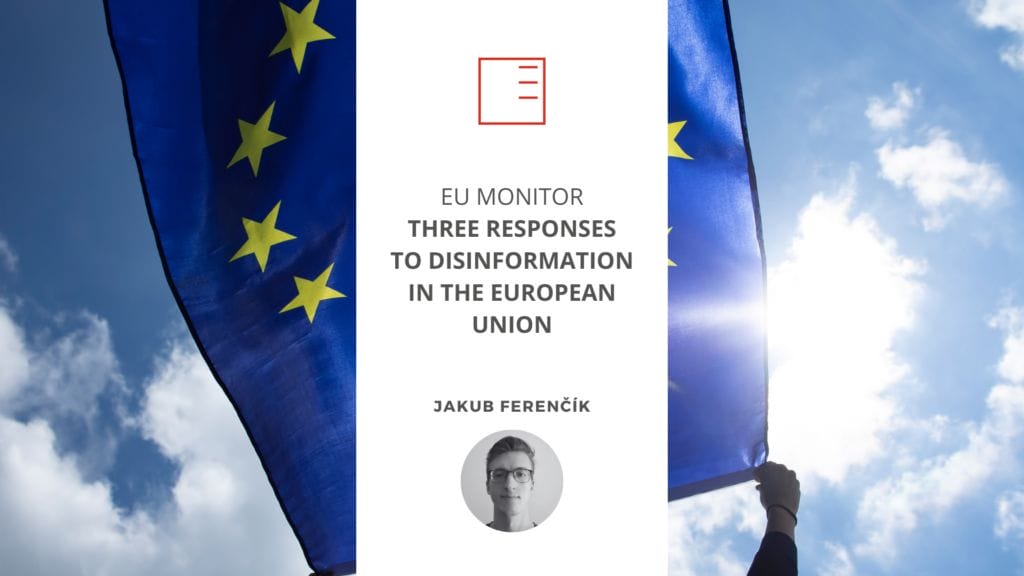
EU MONITOR | THREE RESPONSES TO DISINFORMATION IN THE EUROPEAN UNION
More info 16. 2. 2023
16. 2. 2023
Disinformation and foreign interference have been concerns in global politics for centuries, but social media algorithms have made the current threat more dire as they amplify content based on human frailties such as our obsession with negativity and outrage. Russian interference in the 2016 US federal election and other elections and referenda in at least twenty countries between November 2016 and April 2019, including the Brexit referendum, the French and German elections, and the Ukrainian power grid cyber-attacks, have highlighted the potential for foreign governments to alter the results of an election or undermine democracies using social media and other means. Writes Jakub Ferenčík in his last EU MONITOR.
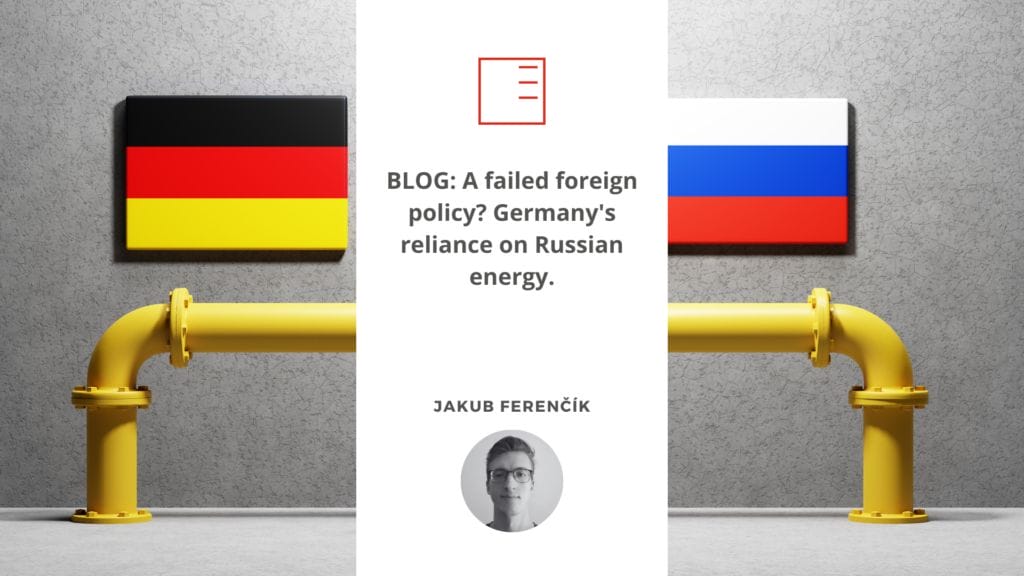
BLOG: A failed foreign policy? Germany's reliance on Russian energy.
More info 13. 10. 2022
13. 10. 2022
Jakub Ferenčík has written a blog on German dependence on Russian gas. In his post he discusses how the German government's initially positive intention to tie Russia to Europe through economic intergation for political stability has backfired and resulted in the opposite. It mentions the role of former Chancellor Gerhard Schröder, who contributed significantly to Germany's dependence on Russian supplies, and the circumstances surrounding the construction of the Nord Stream 2 pipeline. The second part analyses the legacy of former Chancellor Merkel and her failure to perceive Russian expansionist tendencies.
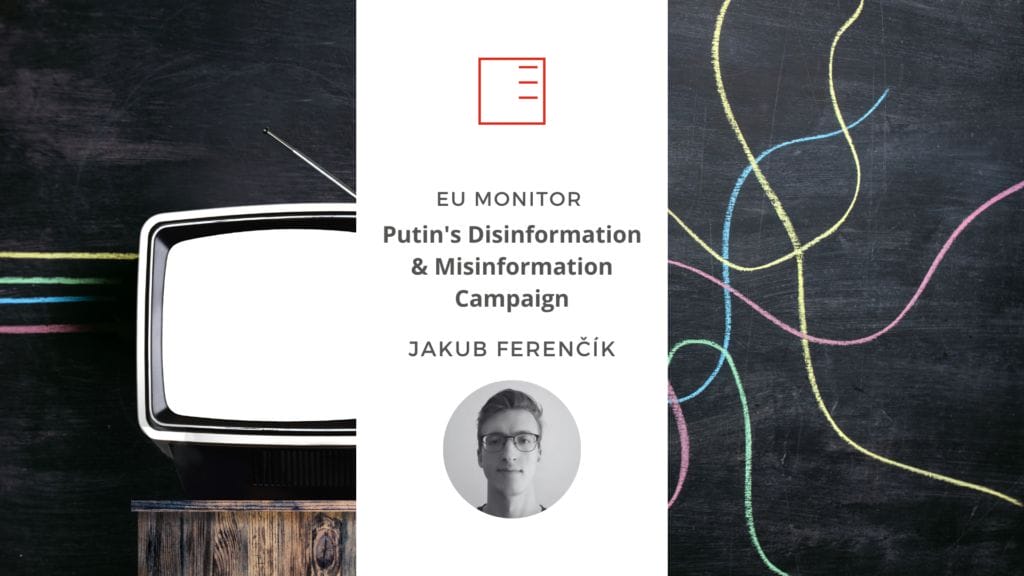
EU MONITOR: Putin's Disinformation & Misinformation Campaign
More info 3. 8. 2022
3. 8. 2022
Disinformation and misinformation have been amplified in the digital age. In order to combat their increasing presence in our everyday lives, we have to first educate ourselves on what disinformation is. In this post, Jakub Ferencik looks at this question in some detail, primarily by analyzing Vladimir Putin’s usage of disinformation in politics.
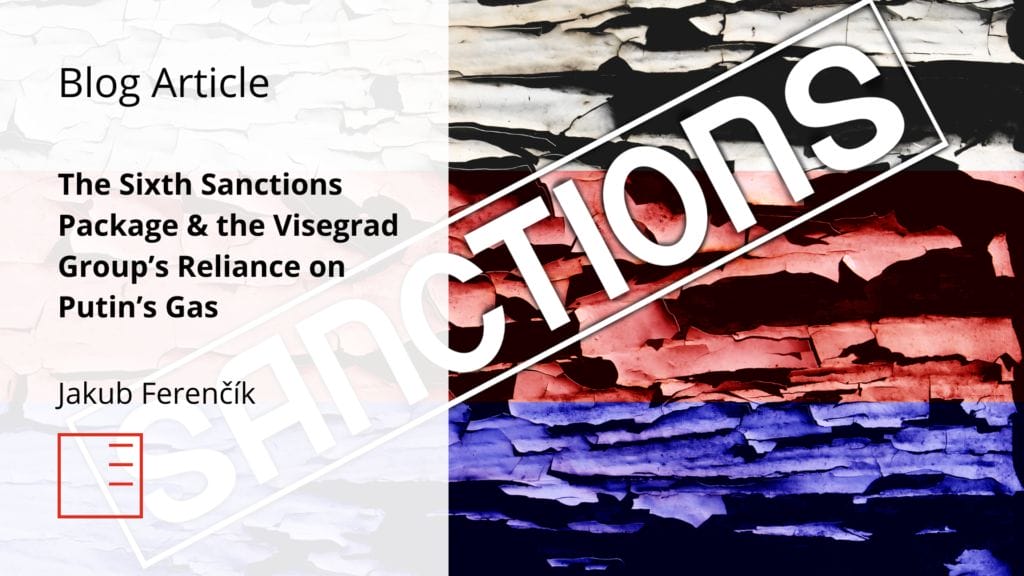
BLOG: The Sixth Sanctions Package & the Visegrad Group’s Reliance on Putin’s Gas
More info 10. 6. 2022
10. 6. 2022
Jakub Ferenčík wrote a blog on the current topic: The Sixth Sanctions Package & the Visegrad Group’s Reliance on Putin’s Gas. Russia's aggression in Ukraine has necessitated another package of sanctions, this time in the energy sector. Due to the lack of alternatives for gas supplies, the Visegrad Four countries had a problem with the implementation of the latest sanctions package. In the end, the EU found a consensus and introduced exemptions for the Czech Republic, Slovakia and Hungary.
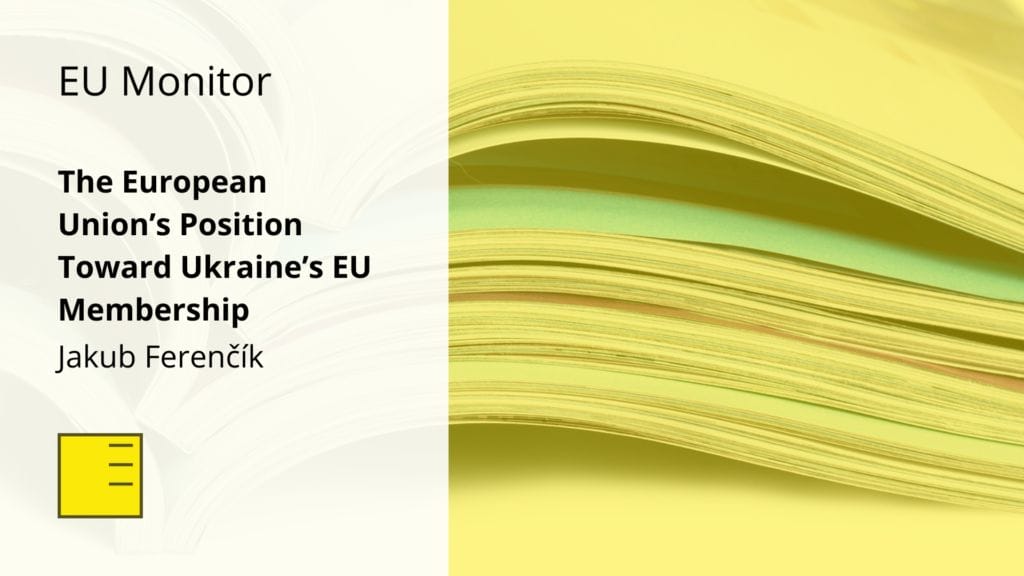
EU MONITOR: The European Union’s Position Toward Ukraine’s EU Membership
More info 25. 5. 2022
25. 5. 2022
Jakub Ferenčík wrote the EU Monitor on "The EU's stance on Ukraine's EU membership", where he discusses Ukraine's potential membership in the EU. Ferenčík also discusses the process of transitioning to EU membership and compares it to a similar process faced by some other countries, notably Serbia. In his work, the author discusses some of the factors of the transition process, from subscribing to EU values such as "human dignity, freedom and equality" to creating an area of "prosperity and neighbourhood".